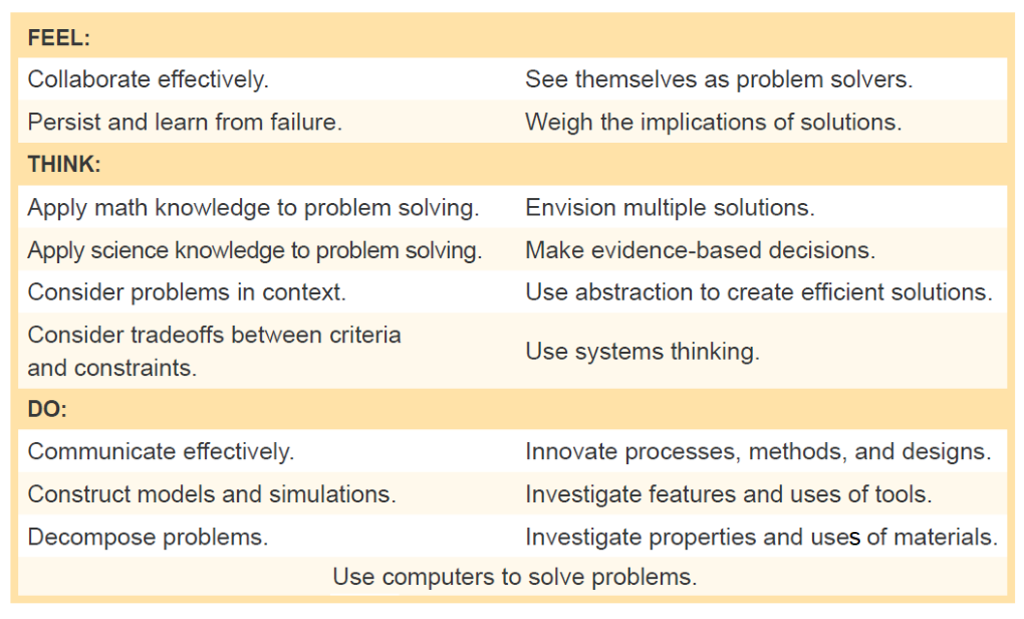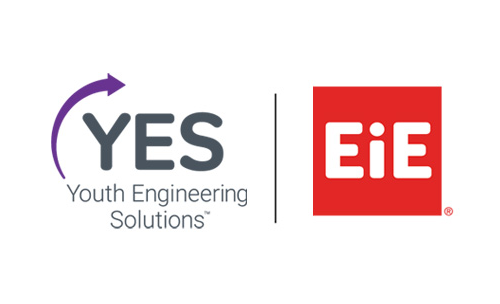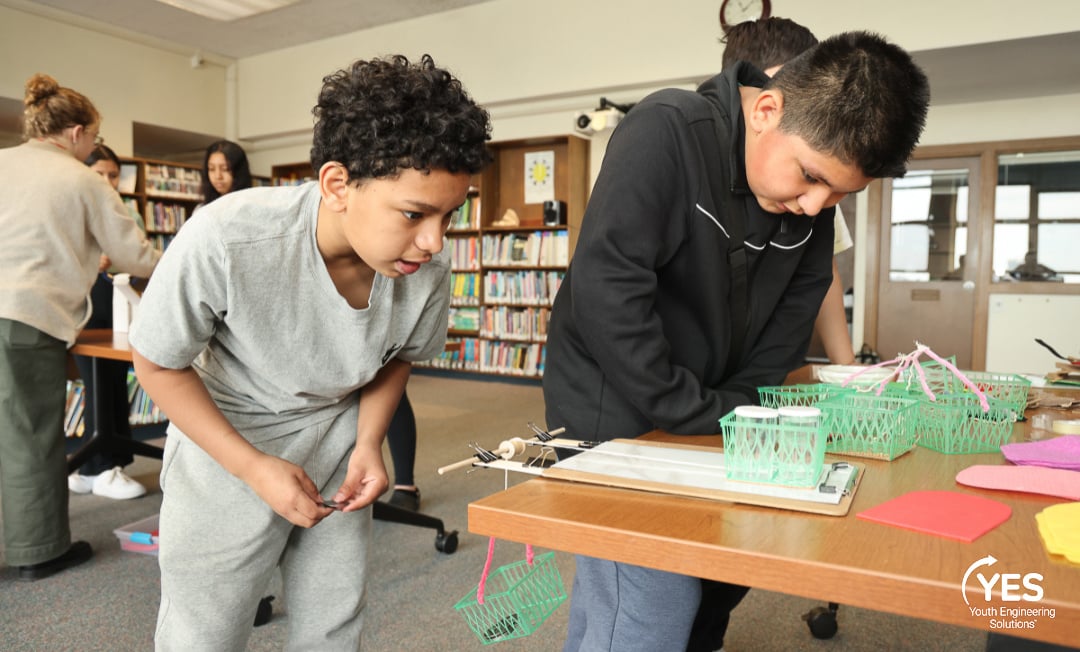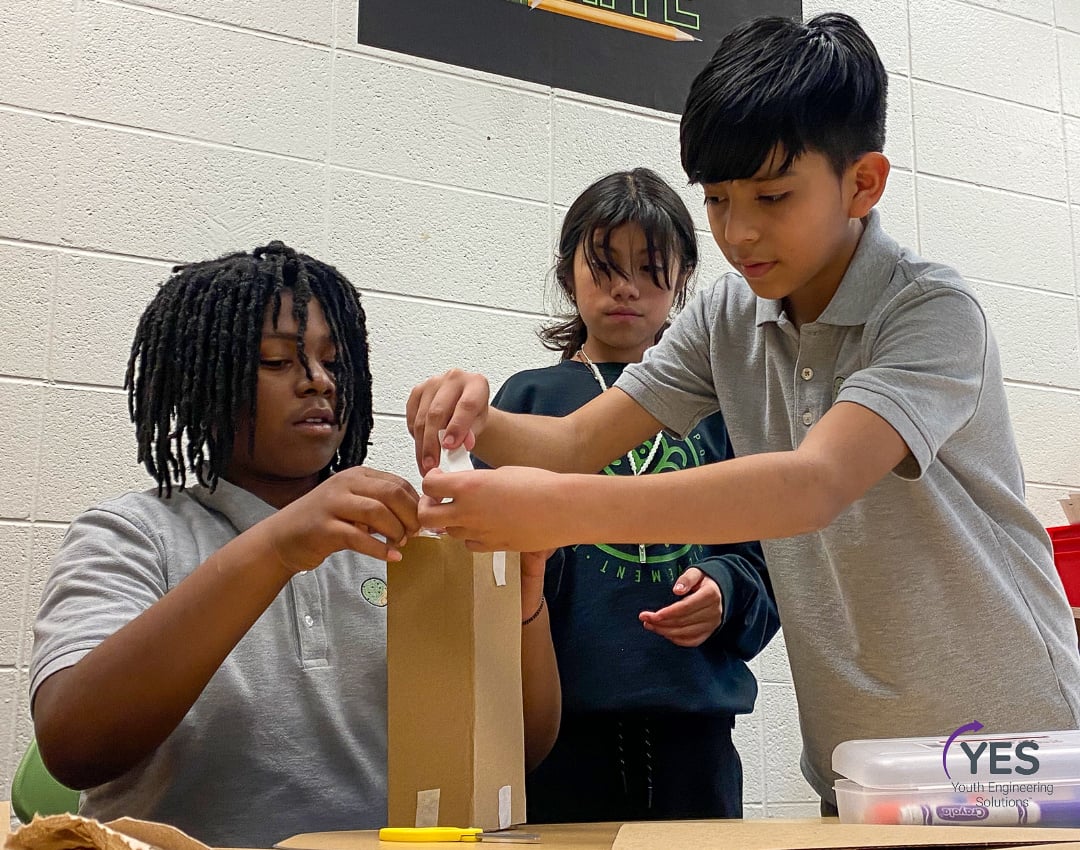As part of the development of the Engineering and Computer Science Essentials curriculum, the EiE team created the EiE Habits of Mind, a list of 19 practices used by engineers and computer scientists. Today, we’ll look more closely at how this list is useful in the classroom.

We designed the Habits list to help educators:
• understand engineering and computer science.• encourage student engineering and computer science practice.
• recognize when students are engineering and practicing computer science.
Understanding Engineering and Computer Science
One challenge that elementary-level educators face is simply understanding engineering and computer science. Consider these definitions of the two fields:
• “We use the term engineering in a very broad sense to mean any engagement in a systematic practice of design to achieve solutions to particular human problems.”
(A Framework for K–12 Science Education, 11)
• “Computer science (CS) is the study of computers and algorithmic processes, including their principles, their hardware and software designs, their applications, and their impact on society.” (A Model Curriculum for K–12 Computer Science, 2)
While these definitions contain a great deal of useful information, their density can make them hard to unpack for someone new to the fields.
The Habits list helps educators by breaking down engineering and computer science into a set of smaller, easier-to-understand practices. For example:
• Engineering involves considering problems in context, envisioning multiple solutions, and applying science knowledge to problem solving.
• Computer science involves investigating the features and uses of tools, decomposing problems, and using computers to solve those problems.
While understanding these fields ultimately requires hands-on experience, the Habits list provides a starting place for becoming familiar with the work of engineers and computer scientists.
Encouraging Student Engineering and Computer Science Practice
Another challenge that engineering and computer science teachers confront is finding ways to engage students in the practices of those fields. The Habits of Mind list serves as a toolkit for discussion questions, encouragement, and extension activities.
For example, the Habit “Persist and learn from failure” might inspire
• the discussion question “What strategies did you use when your design wasn’t working?”
• the encouraging comment that “I admire how you all are learning from the results of your first design.”
• the exercise of listing ways in which designs failed and using that information to plan improvements.
Recognizing When Students Are Engineering and Practicing Computer Science
A final challenge educators face when teaching engineering and computer science is assessing student performance. Especially at the elementary level, learning in these fields depends less on the acquisition of content knowledge and more on the practice of skills, which can be difficult to evaluate with traditional measures.
The Habits list helps educators recognize student engineering and computer science practice by providing a specific set of behaviors to look for. For example, students arguing about a design might look distracted, while they are in fact considering problems in context, envisioning multiple solutions, or making trade-offs between criteria and constraints. An educator familiar with the Habits is more likely to recognize such debate as a valuable practice, and therefore to encourage it (with appropriate structure), rather than seeking to quash it.
In our next post, we’ll look at some specific resources in the Essentials curriculum that can help you use the Habits list to its fullest potential.

Derek Butterton is a curriculum developer at EiE, where he creates engineering and computer science resources for classrooms, out-of-school-time programs, and families. He is especially interested in the history and use of Habits of Mind. When not at work, he enjoys playing board games and spending time outdoors.








